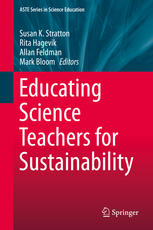

Most ebook files are in PDF format, so you can easily read them using various software such as Foxit Reader or directly on the Google Chrome browser.
Some ebook files are released by publishers in other formats such as .awz, .mobi, .epub, .fb2, etc. You may need to install specific software to read these formats on mobile/PC, such as Calibre.
Please read the tutorial at this link: https://ebookbell.com/faq
We offer FREE conversion to the popular formats you request; however, this may take some time. Therefore, right after payment, please email us, and we will try to provide the service as quickly as possible.
For some exceptional file formats or broken links (if any), please refrain from opening any disputes. Instead, email us first, and we will try to assist within a maximum of 6 hours.
EbookBell Team

4.7
66 reviewsThis volume contains a unique compilation of research and reflections representing multiple vantage points stemming from different parts of the world that can help science educators and teacher educators in finding ways to meaningfully and purposefully embed sustainability into teaching and learning. It is a rich resource for exploring and contextualizing sustainability-oriented science education. At this time we find ourselves in a situation in which the earth’s ecological system is under significant strain as a result of human activity. In the developed world people are asking “How can we maintain our current standard of living?” while those in the developing world are asking “How can we increase the quality of our lives?” all while trying to do what is necessary to mitigate the environmental problems. This volume responds to these questions with a focus on educating for sustainability, including historical and philosophical analyses, and pedagogical and practical applications in the context of science teacher preparation. Included are many examples of ways to educate science teachers for sustainability from authors across the globe. This text argues that issues of sustainability are increasingly important to our natural world, built world, national and international economics and of course the political world. The ideas presented in the book provide examples for original, effective and necessary changes for envisioning educating science teachers for sustainability that will inform policy makers.